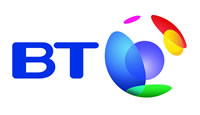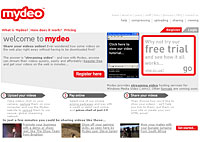 Sky has announced three of its top Exec will be altering roles, we suspect, as they prepare to become more than just a satellite TV company.
Sky has announced three of its top Exec will be altering roles, we suspect, as they prepare to become more than just a satellite TV company.
Using its best management speak, the UK Satellite-overlord is “aligning its organisational structure to support sustained growth towards its target of 10 million direct-to-home customers in 2010.”
The favoured three will be stepping it up a gear, and far beyond having the key for the executive toilet, we suspect they’ll be getting a whole suite of bathroom facilities.
- Dawn Airey, who has been Managing Director of Sky Networks since 2003, becomes Managing Director, Channels and Services with overall responsibility for Sky’s multi-platform content strategy. The existing Sky Networks structure will be joined in the Channels and Services group by an enlarged interactive team that brings together all of Sky’s new media content on interactive TV, online and mobile platforms. She’ll assume additional responsibility for Sky’s joint ventures, wholesale distribution arrangements with cable companies and commercial relationships with third-party channels on the satellite platform.
- Mike Darcey, who joined Sky in 1998 and is currently Group Strategy Director, becomes Group Commercial and Strategy Director with extended responsibility for a new group that combines Sky’s Strategy, Future Technology, R&D and Business Development teams. In addition, he’ll take on a further responsibility to manage and develop Sky’s major commercial relationships in support of the company’s strategic goals
- Jon Florsheim, who joined Sky in 1994, becomes Managing Director, Customer Group in addition to his existing title of Chief Marketing Officer. The Customer Group brings together all of Sky’s expertise in sales, marketing and customer operations to create a seamless brand, product and service experience for customers. This team will lead the continued development and implementation of Sky’s multi-product strategy, including the launch of the company’s broadband offering in the second half of calendar 2006.
 We think Mike Darcey sounds like he’s going to have the most fun, and certainly the most toys to play with.
We think Mike Darcey sounds like he’s going to have the most fun, and certainly the most toys to play with.
James Murdoch, Sky’s Chief Executive, touches on where BSkyB is planning on going, as they “exploit content on multiple platforms and expand into adjacent areas of business.”
With the strength of BSkyB’s relationships with their customers, fear will be struck into the heart of many execs in many industries by the words “adjacent areas of business.”
 Several thousand rural surfers across Europe suddenly found themselves sans le Internet after European-based satellite broadband provider Aramiska unexpectedly slammed shut its operations with just five hours’ notice.
Several thousand rural surfers across Europe suddenly found themselves sans le Internet after European-based satellite broadband provider Aramiska unexpectedly slammed shut its operations with just five hours’ notice. The Community Broadband Network (CBN) is organising efforts to help Aramiska customers find an alternative satellite broadband supplier, with their director, Adrian Wooster, commenting, “The Aramiska issue totally caught our members unaware, and is causing many problems for rural businesses beyond simple connectivity; the Aramiska service was also hosting many Websites and has been offering file storage capabilities for businesses.”
The Community Broadband Network (CBN) is organising efforts to help Aramiska customers find an alternative satellite broadband supplier, with their director, Adrian Wooster, commenting, “The Aramiska issue totally caught our members unaware, and is causing many problems for rural businesses beyond simple connectivity; the Aramiska service was also hosting many Websites and has been offering file storage capabilities for businesses.” Separately, a consolidating Carphone Warehouse has been on the acquisition trail and agreed the purchase of Tele2’s UK and Ireland operations, and separately, Onetel.
Separately, a consolidating Carphone Warehouse has been on the acquisition trail and agreed the purchase of Tele2’s UK and Ireland operations, and separately, Onetel. The purchase of Onetel from Centrica for £132 million includes £37.1 million, while will be delivered if Centrica deliver a targeted number of customers in the next three years via its British Gas operations. The Carphone Warehouse will also pay Centrica an additional £22.2 million if higher sign-up targets are met.
The purchase of Onetel from Centrica for £132 million includes £37.1 million, while will be delivered if Centrica deliver a targeted number of customers in the next three years via its British Gas operations. The Carphone Warehouse will also pay Centrica an additional £22.2 million if higher sign-up targets are met. NTL is currently in talks to merge with Virgin Mobile in a deal that would create a potential rival to the now
NTL is currently in talks to merge with Virgin Mobile in a deal that would create a potential rival to the now  In a fiercely competitive market, cable companies on both sides of the Atlantic are looking to outflank their satellite and phone company rivals by adding mobile phone services to their portfolio of voice, Internet and TV services.
In a fiercely competitive market, cable companies on both sides of the Atlantic are looking to outflank their satellite and phone company rivals by adding mobile phone services to their portfolio of voice, Internet and TV services. NTL and Telewest have notched up around 5 million subscribers combined, next to BSkyB’s 7.8 million digital television viewers.
NTL and Telewest have notched up around 5 million subscribers combined, next to BSkyB’s 7.8 million digital television viewers. BT have been enjoying government payouts to maintain their networks.
BT have been enjoying government payouts to maintain their networks. Broadband adoption in the UK may soon be reaching its peak, according to a new report from Datamonitor.
Broadband adoption in the UK may soon be reaching its peak, according to a new report from Datamonitor. Although we’re nearly broadbanded out in Europe, the report sees excellent opportunities for growth in less mature markets.
Although we’re nearly broadbanded out in Europe, the report sees excellent opportunities for growth in less mature markets. MetroNet, UK broadband ISP, has been purchased by PlusNet in an all cash deal for £1.7m.
MetroNet, UK broadband ISP, has been purchased by PlusNet in an all cash deal for £1.7m. MetroNet has grown since their start in 2003 to 16,000 subscribers, turning over £2.1m bringing an operating profit of £40,000 in the year ended 31 March 2005. They have net cash of over
MetroNet has grown since their start in 2003 to 16,000 subscribers, turning over £2.1m bringing an operating profit of £40,000 in the year ended 31 March 2005. They have net cash of over  We, and we assume other MetroNet subscribers, hope that the high quality of service that we’ve received from them continues, without interruption, in the transition to PlusNet.
We, and we assume other MetroNet subscribers, hope that the high quality of service that we’ve received from them continues, without interruption, in the transition to PlusNet. Mydeo, the UK consumer video streaming company, has teamed up with UK ISP Tiscali to offer streaming video sharing services to broadband users of the UK Tiscali Website.
Mydeo, the UK consumer video streaming company, has teamed up with UK ISP Tiscali to offer streaming video sharing services to broadband users of the UK Tiscali Website. Members will be able to stream their cinematic masterpieces on a pay-as-you-go basis, and will only have to shell out when they choose to upload a video. Users can pay in Euros, UK Pounds or US Dollars.
Members will be able to stream their cinematic masterpieces on a pay-as-you-go basis, and will only have to shell out when they choose to upload a video. Users can pay in Euros, UK Pounds or US Dollars. “Mydeo is really easy to use and offers lots of help and support for our members who may be putting video on the Web for the first time,” Hole insisted.
“Mydeo is really easy to use and offers lots of help and support for our members who may be putting video on the Web for the first time,” Hole insisted. Submissions should give the name and postal address of the person sending the memorandum and should state whether it has been prepared specifically for the Committee. If the memorandum is from an organisation rather than an individual, it should briefly explain the nature and membership of the organisation. The Committee may publish some of the submissions it receives.
Submissions should give the name and postal address of the person sending the memorandum and should state whether it has been prepared specifically for the Committee. If the memorandum is from an organisation rather than an individual, it should briefly explain the nature and membership of the organisation. The Committee may publish some of the submissions it receives. The rollout of ADSL2+ in the UK appears to be going through a reverse-hype process, with people saying it’s not going to deliver high speeds to most people. That may be partially true, but in urban areas where people are within 1.5Km of the exchange they should get 20Mb/s+.
The rollout of ADSL2+ in the UK appears to be going through a reverse-hype process, with people saying it’s not going to deliver high speeds to most people. That may be partially true, but in urban areas where people are within 1.5Km of the exchange they should get 20Mb/s+.